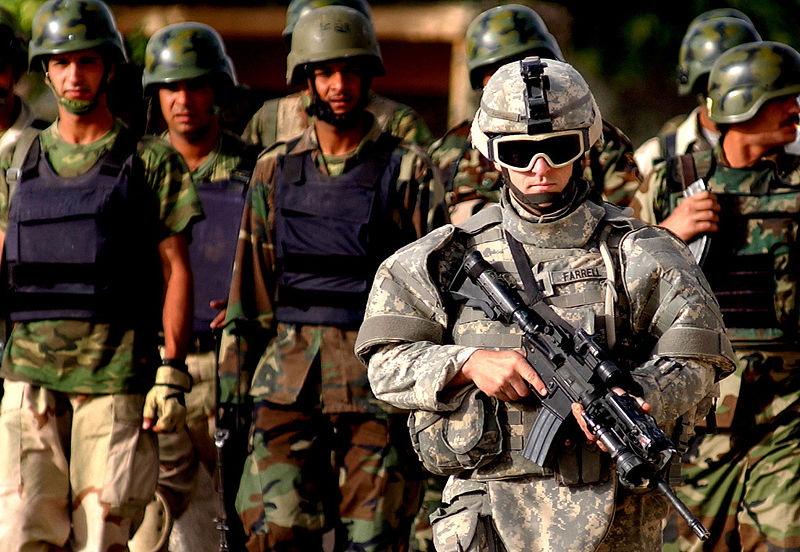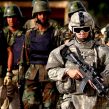
Jihadis Ask How the Mujahideen Will Control an Islamic State of Iraq
Publication: Terrorism Monitor Volume: 7 Issue: 24
By:

Jihadi internet forum members are engaged in a continuing debate on the obstacles hindering the application of Islamic law in Iraq after the U.S. withdrawal and suggest certain approaches to modify the current social and unreligious practices of the people. The debate was triggered by a posting entitled “How would the Mujahideen control the regime?” (hanein.info, July 24).
In a posting intended to start a discussion and solicit ideas to improve the deteriorating application of Islam in Iraq, forum member “al-Falahi” complains that the people of Iraq are abandoning Islam, consequently making it difficult for the mujahideen to take control of the regime in Iraq and set up an Islamic Shari’a state after the 2011 U.S. withdrawal.
Al-Falahi claims that from the time of the 2003 U.S. occupation until a few years ago, pious Sunni Islamic practices dominated in Baghdad. Currently, most Sunni dominated neighborhoods are ignorant of the Sunni creed and the majority of Sunnis support the infidel Awakening councils. Worse, people curse God and religion, bars are abundant, and young men and women are busy engaging in forbidden relationships. Iraqis are growing ever-distant from committing to an Islamic state once the mujahideen take over. The 95% of people who once supported the mujahideen now support the Awakening councils. Al-Falahi says that regardless of the reasons that led to the current detachment of people from Islam, the different Iraqi mujahideen factions must now consider how to tackle the following issues before attempting to implement Shari’a in Iraq:
• The weak ideological commitment of Iraqi Sunnis.
• The absence of a suitable entity to rule the state. To establish an Islamic Shari’a state, there must at least be people who are capable of resisting local pressure against Shari’a from the Kurdish Peshmerga militias in the north and the well-trained Shiite militias in the south. The Islamic state must also be prepared for regional interference from Iran, Turkey and the “pro-Western” states of Jordan, Saudi Arabia, Kuwait and Syria, all of whom would not hesitate to impose an embargo on the Islamic State of Iraq if ordered to by the West.
• Even if the mujahideen came to power, they would need to apply certain measures to control Baghdad’s Shi’a, who are 75% of the population.
• The mujahideen also need to deal with the existing Iraqi military and police trained by the occupation and willing to engage the mujahideen. Al-Falahi put the total strength of Iraq’s security forces at 500,000, along with 100,000 members of the Awakening councils.
• The mujahideen need to tackle the many Islamic factions with international connections.
Al-Falahi ends his posting with a question: If the Americans withdraw from Iraq leaving behind only a few bases, how could the mujahideen take over and rule the country by establishing an Islamic state?
Over the following week, many forum members responded to al-Falahi’s inquiry. Some members felt that al-Falahi exaggerated the number of Iraqis who had abandoned the Islamic state project. To address the problem, members believe the real reasons behind Iraq’s shift away from Shari’a should be explored. The mujahideen must have a clear political and Islamic agenda comprehensible by common Iraqi Sunnis. Other members responded by saying the different mujahideen factions have secret military and political plans ready to implement after the U.S. withdrawal, but to make these plans a reality these same factions will have to unite under one command and keep attacking the enemy and his supply routes until the occupation is no longer sustainable.
Concerning the Awakening councils, forum members agree they will collapse just like the current government of Iraq after the U.S. pullout. Eliminating the heads of tribes that support the U.S. occupation would guarantee the demise of the Awakening councils. The Sunni factions created by the occupation will face a similar fate, but the Shi’a factor remains a big problem for the Islamic state project and should be dealt with by the same oppressive measures used by the regime of Saddam Hussein.
Forum member Abu Obaida al-Jabouri does not think the Iraqi people are shifting their support from the mujahideen to the occupation. The proof may be seen in the daily jihad operations that kill many Crusaders, Shiite rejectionists and apostates. When the mujahideen shura council announced the Iraqi Islamic state project, the mujahideen were in control of al-Anbar, Diyala, Salah al-Din and Mosul provinces. People were very content with the rule of the mujahideen. Unfortunately, mujahideen rule did not last long because many jihadi factions were tardy in pledging allegiance to the new state.
According to al-Jabouri, the jihadis’ Islamic State project began with a first phase of guerrilla warfare conducted by the mujahideen. The second phase was the establishment of the Islamic State of Iraq (ISI). The final phase of jihadi operations, control of the whole country, has been obstructed by the Awakening councils and Iraqi traitors who conspired against the ISI.
Now the mujahideen are back to phase one and will continue jihad operations. The Awakening councils came at a time when Shiites were killing common Sunni Iraqis. The people were optimistic that these councils would protect them from Iranian aspirations in Iraq. Therefore, the mujahideen who succeeded in defeating the Americans and forcing them to announce pullout plans must educate the people and convince them to accept the Salafi-Jihadi factions before attempting the application of Islamic Shari’a similar to what is being done in Somalia and Afghanistan.
Finally, al-Jabouri said, “My dear brothers, you should not underestimate the strength of the mujahideen who defeated superpowers in Afghanistan and Iraq. We are fighting [the occupation] with our convictions and faith in God.” Many expect Iraq’s jihadi factions to fight each other over conflicting goals and methods after the U.S. withdrawal from Iraq, much like Afghanistan’s mujahideen factions attacked each other after the Soviet withdrawal.





